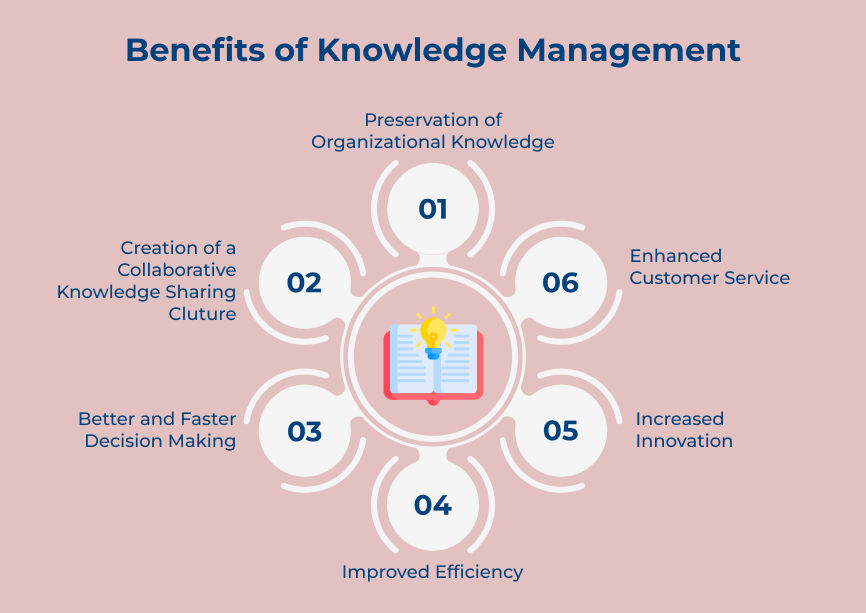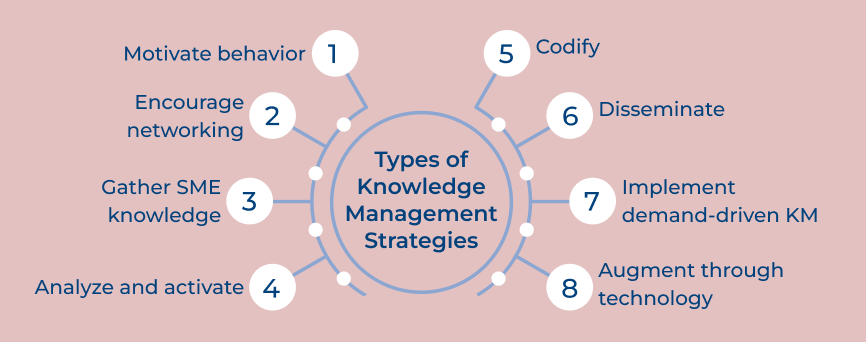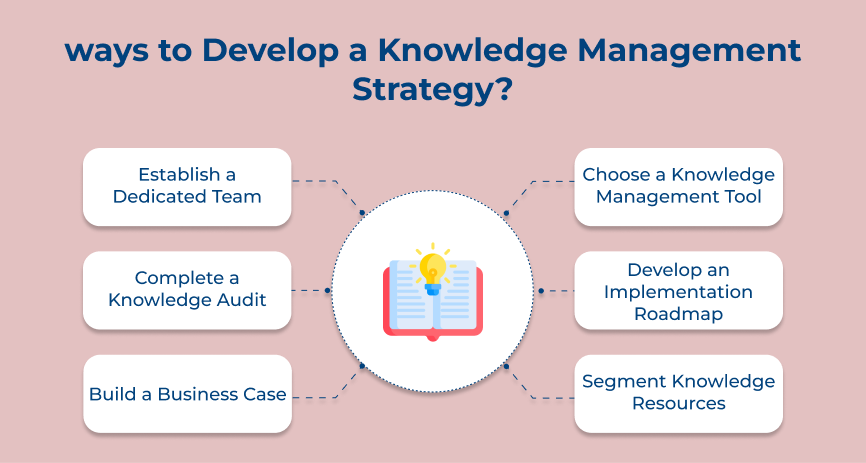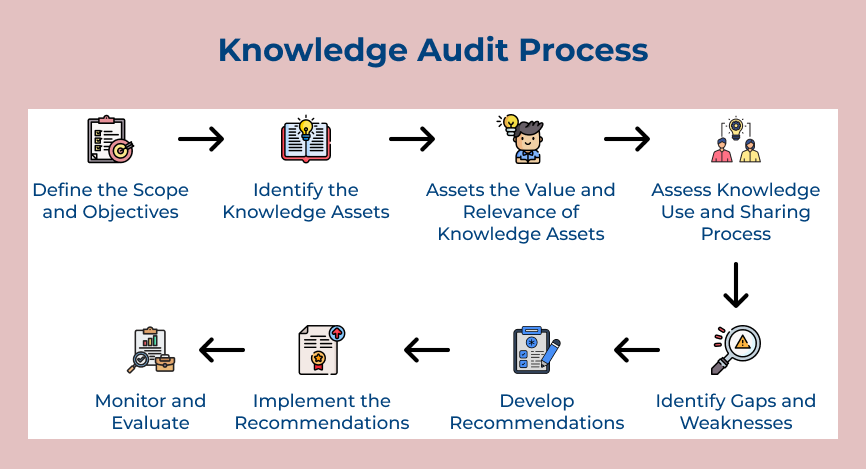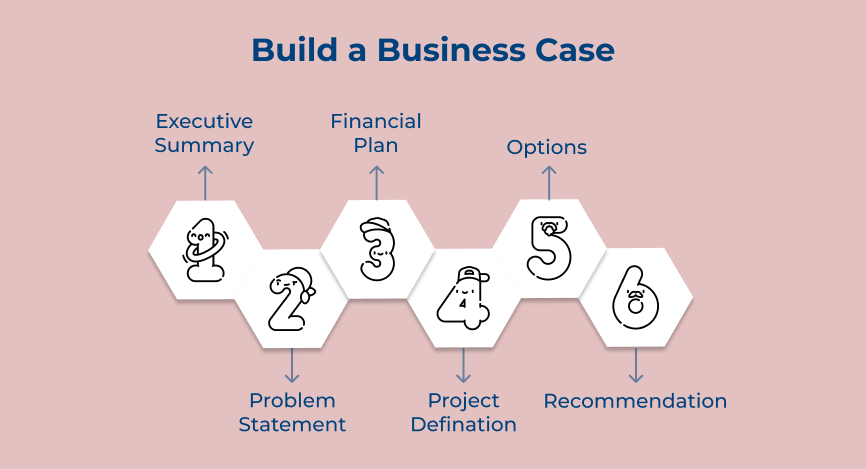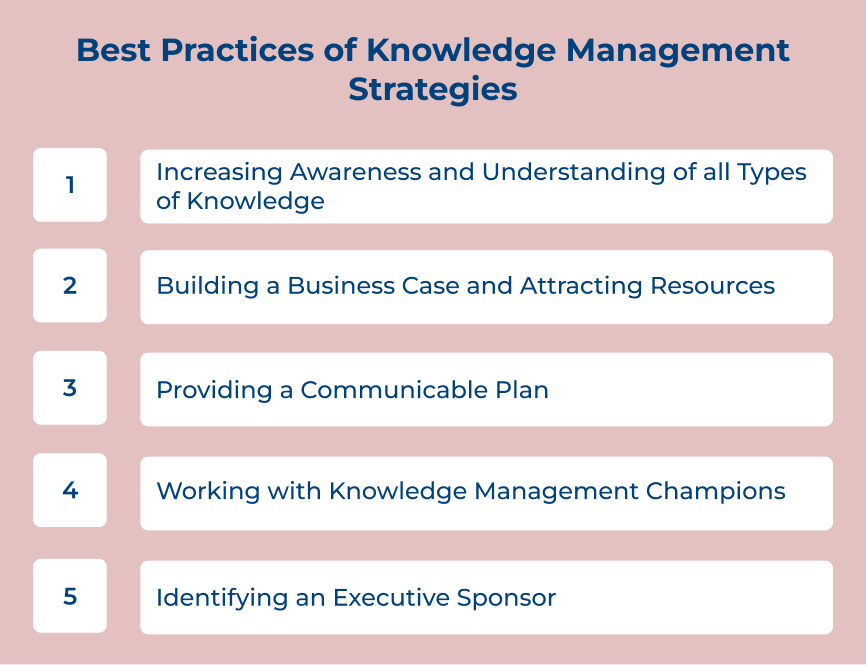Choosing the right knowledge management tool is important because it can make or break your knowledge management initiative. The tool should align with the organization’s goals, culture and specific knowledge management needs. Let’s say the organization values collaboration and social learning. A tool with features like discussion forums, wikis and social networking capabilities would be ideal.
Pro tips:
- Conducting a thorough needs assessment to identify the specific knowledge management requirements of your organization.
- Researching and comparing different knowledge management tools to find one that best meets your needs. Consider factors such as usability, scalability, integration capabilities and cost.
- Pilot-testing the selected knowledge management tool with a small group of users to evaluate its effectiveness and gather feedback for further improvement.
5. Develop an Implementation Roadmap
Developing an implementation roadmap is a crucial step in creating a successful knowledge management strategy. The step involves outlining the specific actions and timelines needed to implement the strategy effectively. If there is not a clear roadmap, it can be easy for tasks to become disorganized or overlooked, leading to delays and inefficiencies in the implementation process.
Let’s consider a company that is looking to implement a KM strategy. It might create an implementation roadmap that outlines the steps for setting up a knowledge sharing platform, training employees on how to use it and implementing processes for sharing knowledge within the organization.
Pro tips:
- Clearly define the tasks and responsibilities of each stakeholder involved in the implementation process.
- Set realistic timelines for each task to ensure that the implementation stays on track.
- Regularly review and adjust the roadmap as needed to address any challenges or changes that may arise during implementation.
6. Segment Knowledge Resources
Segmenting knowledge resources is a crucial step in developing knowledge management strategy tactics. The step involves categorizing knowledge resources based on different criteria, such as topic, type or audience. Segmenting knowledge resources allows businesses to easily access relevant information when needed, leading to more efficient knowledge sharing and decision making within a company.
A company may segment its knowledge resources by department. It will allow the employees in different areas of the organization to quickly access relevant information related to their specific roles and responsibilities. The segmentation can improve collaboration and communication within the organization, leading to increased productivity.
Pro tips:
- Creating a taxonomy or classification system for knowledge resources
- Utilizing metadata tags to categorize and organize information
- Implementing a knowledge management platform with advanced search and retrieval capabilities.
Top 3 Real-life Knowledge Management Strategy Examples
Following are the top three real-life knowledge management strategy examples that illustrate how successful companies leverage their collective expertise to drive results and maintain a competitive edge.
1. Siemens
Siemens is a global powerhouse in electrical engineering, operating in the fields of industry, energy and healthcare. It is considered a brand with an effective knowledge management strategy, making it a leader in innovation and productivity.
One key management strategy implemented by Siemens is its use of a centralized knowledge management system. It allows employees to easily access and share information, ultimately leading to increased across the organization. Siemens prioritizes training and development programs to ensure that employees are constantly adapting to new technologies.
The impact of Siemens’ strategy is evident in its ability to quickly adapt to changing market conditions and stay ahead of its competitors. Other businesses can implement similar strategies by investing in technology, promoting a culture of knowledge sharing and prioritizing employee development.
2. Tata Steel
Tata Steel is a renowned global steel company known for its strong brand presence and effective knowledge management strategy. The company has implemented various management strategies, including creating knowledge sharing platforms, establishing a culture of continuous learning and investing in technology for data analysis.
The strategies have helped Tata Steel streamline its operations, improve decision-making processes and enhance overall productivity. Effectively managing and sharing knowledge within the organization has kept Tata Steel ahead of its competitors.
Other businesses can implement similar knowledge management strategies by prioritizing knowledge sharing, investing in employee training and leveraging technology to analyze data effectively. Following Tata Steel’s example can help businesses improve their decision-making processes, drive innovation and achieve long-term success in their respective industries.
3. Amazon
Amazon is a global e-commerce giant known for its efficient knowledge management strategy. One key strategy that Amazon implements is their robust internal communication system which allows employees to easily share and access information. It ensures that everyone in the company is on the same page, leading to better decision-making and increased productivity.
Another strategy Amazon uses is its customer data analytics. Analyzing data on customer behavior, preferences, and purchase history has enabled Amazon to personalize the shopping experience for each customer. It has resulted in increasing customer satisfaction and loyalty.
Other businesses can implement the strategies by focusing on communication, utilizing customer data effectively and investing in technology to drive success in their own industry. Businesses can enhance their operations, improve customer experience and eventually drive business success by adopting similar knowledge management strategies.
Best Practices of Knowledge Management Strategies
Now we will go through the best practices of knowledge management strategies that will help you unlock the true potential of your business.






